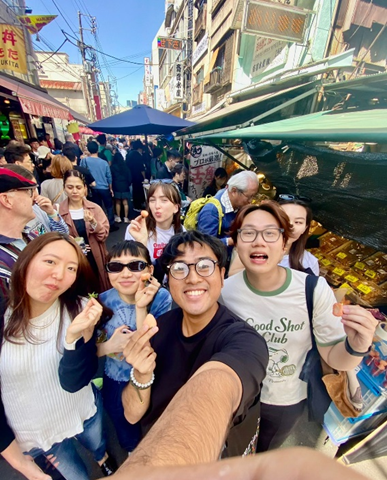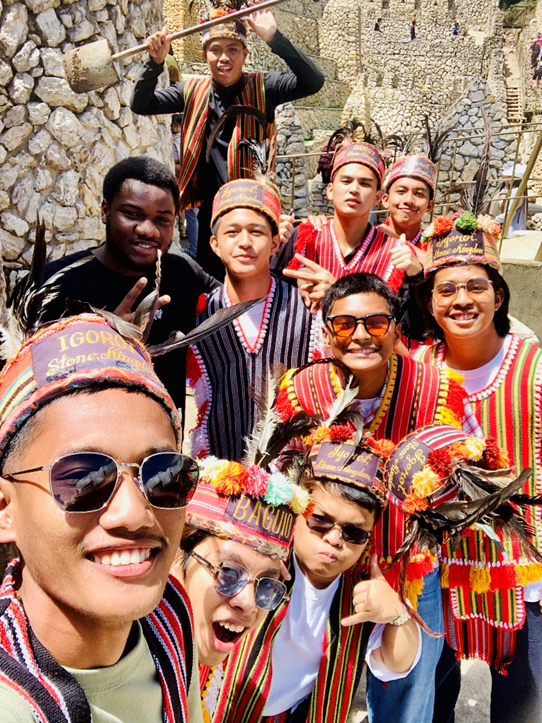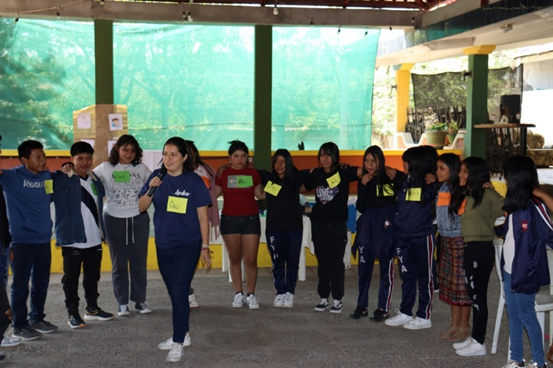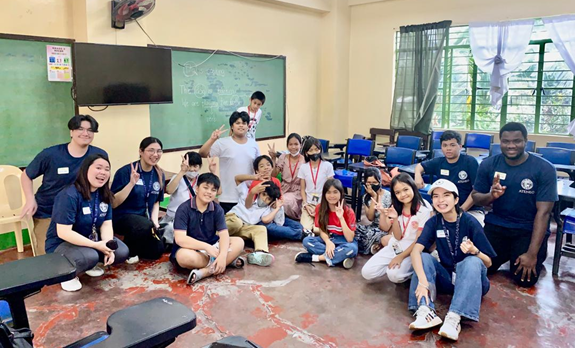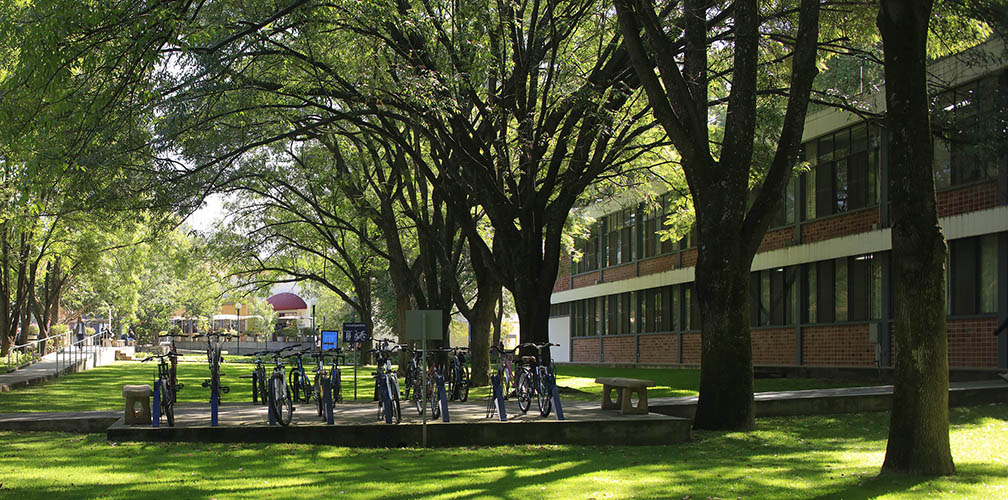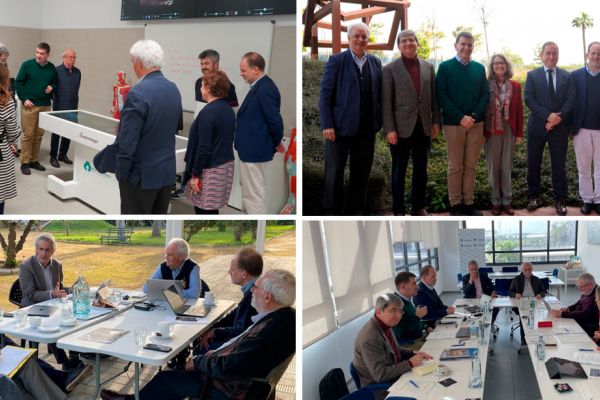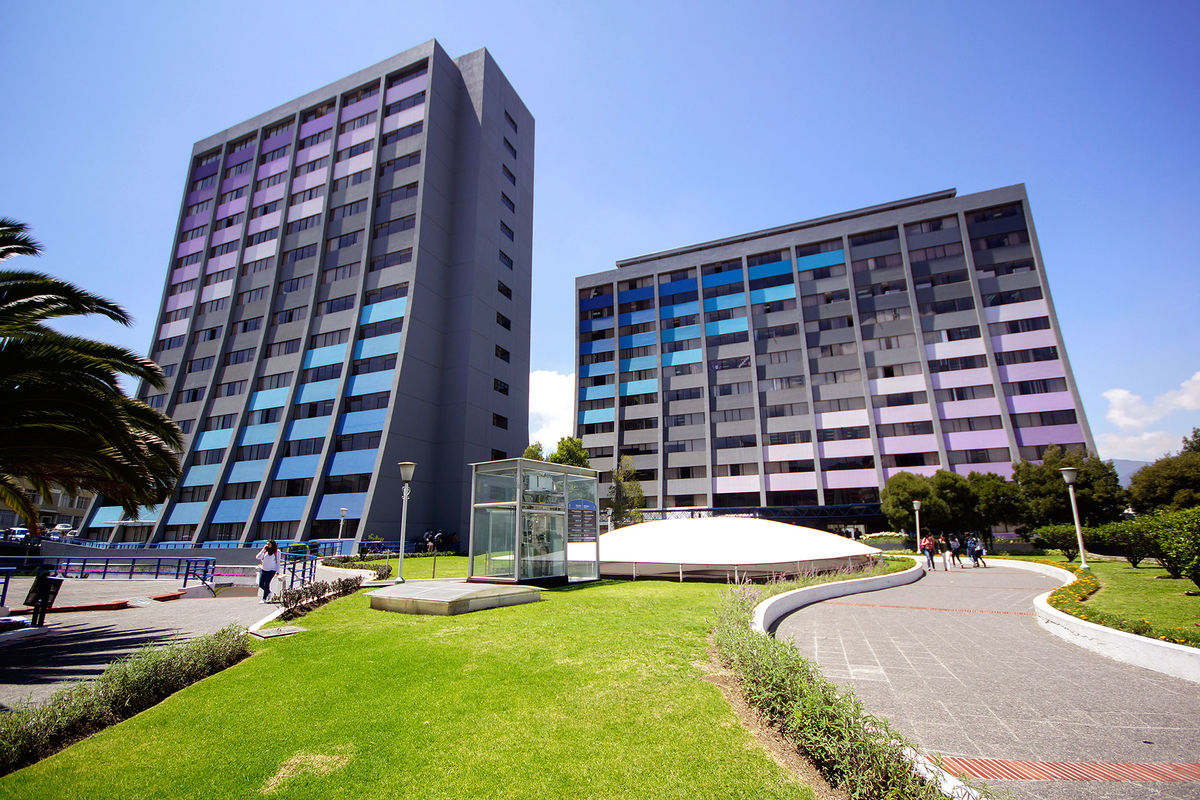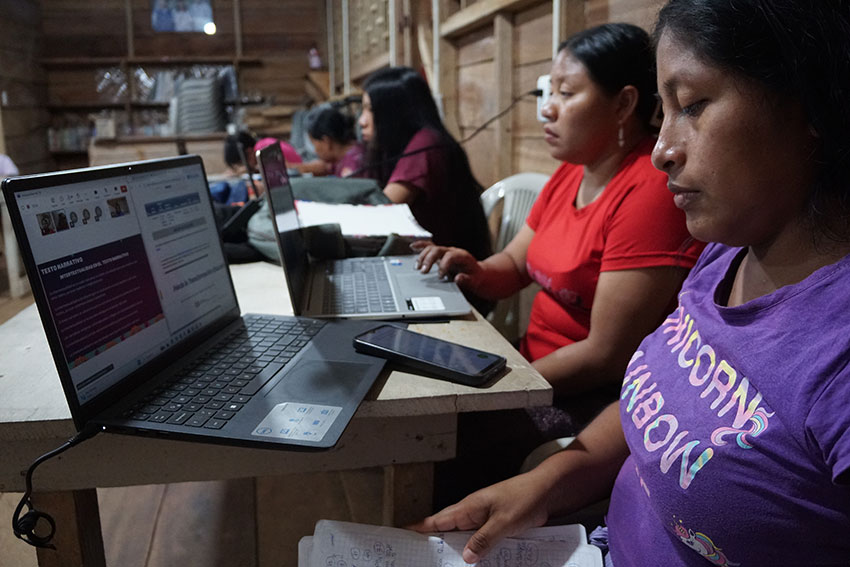Five Years of Magis Exchange Program
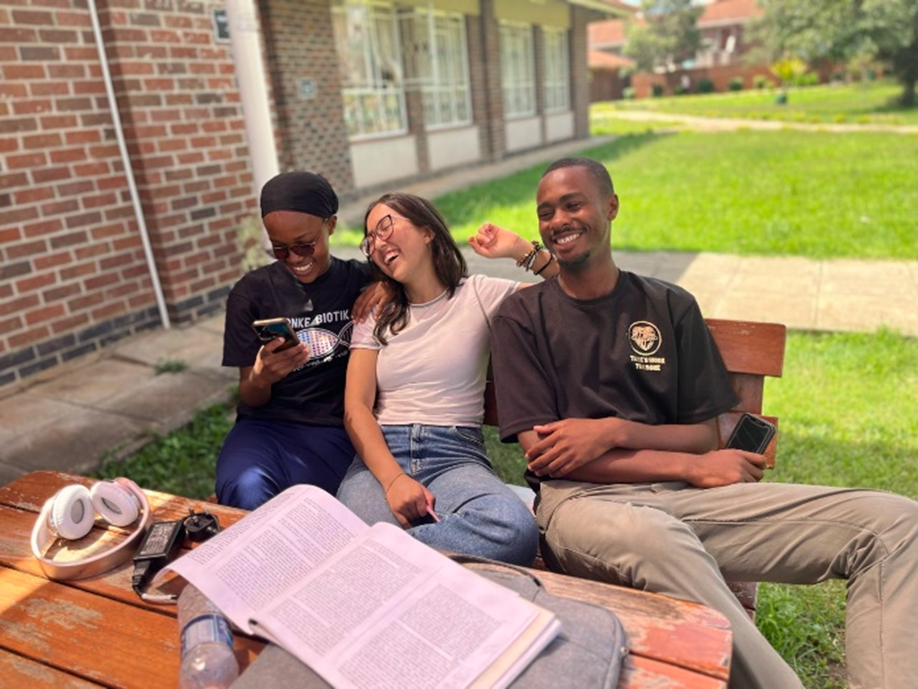
By Aranza Márquez Mora, Magis Exchange Coordinator.
*English translation in co-authorship with IA below.
El Programa Magis Exchange representa la esencia misma de la misión educativa de la Compañía de Jesús, encarnando valores de excelencia académica, conciencia social, justicia y solidaridad. Iniciativa de la Asociación Internacional de Universidades Jesuitas (IAJU),Magis Exchange no solo busca impulsar el desarrollo académico, sino también ofrecer experiencias internacionales que promueven el servicio y la justicia social y medioambiental.
Desde su inicio en 2019 con 28 instituciones, Magis Exchange ha experimentado un crecimiento notable. Actualmente, 39 instituciones participan activamente, y el Grupo de Trabajo está considerando nuevas incorporaciones (véase mapa de lasinstitucionesparticipantes:https://magisexchange.org/map/).
Durante los años 2015-2018,Magis Exchange se encontraba en su fase de ideación, definiendo los pilares fundamentales que sustentarían su estructura. La fase piloto, entre 2018 y 2022, enfrentó el desafío de la pandemia de COVID-19, adaptándose y fortaleciendo su propósito. Actualmente, el programa está en fase de consolidación, buscando expandir su alcance.
El programa ha tenido123 estudiantes, en 7 cohortes, desde el 2019, con un promedio de 18 alumnos por cohorte. Las regiones que más envían estudiantes son AUSJAL y JHEASA (South Asia). Por otra parte, las regiones que más reciben estudiantes Magis son Kircher Network y AJCU-North America. Aunque algunas regiones envían más estudiantes que otras, todas las regiones han enviado y recibido estudiantes.
El Grupo de Trabajo de Magis Exchange está trabajando en la consolidación del programa, trabajando en establecer procedimientos oficiales de renovación, para la incorporación de nuevas instituciones y para una mejor evaluación del programa y la experiencia de los estudiantes. Mirando hacia el futuro, se están explorando formas de hacer el programa más accesible financieramente y se está trabajando para fijar unas preferencias y objetivos para los próximos seis años de Magis Exchange, que serán debatidos en febrero de 2025 en la IAJU International Education Conference en la Universidad Sophia.
Entre los logros del programa, se identifica que ha fortalecido los esfuerzos de internacionalización de universidades con exposición global limitada. Ha fomentado la colaboración entre universidades jesuitas y ha generado relaciones institucionales donde se prioriza la solidaridad sobre la reciprocidad. Además, ha creado una comunidad global interconectada de representantes de instituciones participantes, facilitando iniciativas educativas internacionales y promoviendo la ciudadanía global ignaciana.
Los frutos más significativos se encuentran en las experiencias internacionales que ponen énfasis en la justicia social y ambiental, junto con las oportunidades de aprendizaje orientadas al servicio que se ofrecen a los estudiantes participantes. La estudiante Azul Serratos, de la Universidad Iberoamericana de León, que está haciendo su intercambio en la Universidad Loyola Andalucía:
“El programa Magis me hace reafirmar la necesidad de trabajar con un espíritu crítico y reconocer el carácter multifacético del estudio del mundo natural y cómo lo percibimos y nos relacionamos con él, teniendo la capacidad de cuestionar las decisiones y acciones personales y colectivas en relación con el uso de los recursos y los discursos empleados para ello. El Programa Magis me ha regalado esperanza, al ver las redes de personas que se van formando, atravesando fronteras y prejuicios en búsqueda de un mundo más equitativo y humano. Observar cómo se van tejiendo estas redes de personas comprometidas con el cambio, que no se dejan intimidar por tanto que hay por resolver, sino que hacen frente desde su posición, es la suma de esfuerzos. Es esta colectividad la que logra el cambio y me contagia de esperanza”.
Por otra parte, el estudiante AJ Raymundo Jr., de la Universidad Ateneo de Manila, que está haciendo su intercambio en la Universidad de Sophia, en Japón, comenta que lo que hace que el programa sea una:
“..experiencia única es que te conecta con una comunidad global de estudiantes de otras universidades jesuitas. En este aspecto, no solo escuchas cómo hablan sobre sus comunidades y el medio ambiente en su país de origen y, luego, en su país de destino, sino que también puedes compartir sobre el tuyo. Es poderoso e inspirador conectarse con otras personas, aunque sea de manera virtual, y compartir entre todos nuestras propias historias sobre temas de interés. Fue un espacio para reflexionar sobre los problemas ambientales desde una perspectiva ética y espiritual, tanto a nivel local durante el primer semestre como a nivel global durante la movilización internacional, lo cual enriquece aún más la experiencia”. Por último, comparte que “siento que soy una persona completamente diferente de cuando comenzó el programa: renovado y apasionado como una persona con y para los demás, alguien que está en sintonía con sus comunidades y la naturaleza”.
Desde Ateneo Manila en Filipinas, el estudiante de la universidad Arrupe Jesuit University en Zimbabue,Chimgozirim Oparaku, comenta que:
“Fue a través de este viaje inmersivo y revelador que aprendí el verdadero significado de la empatía, la ciudadanía global, la compasión y el poder de la educación para romper el ciclo de la pobreza. Estoy agradecido por la oportunidad de haber sido parte de algo más grande que yo mismo y de haber presenciado la resiliencia y la fortaleza del espíritu humano ante la adversidad. Como dije en mi carta de motivación durante mi solicitud de intercambio Magis, "Mi intención para el programa Magis es crecer y ver el mundo a través de nuevos lentes, ayudar y ser ayudado a convertirme en una mejor persona y estudiante". Al final, puedo decir que mi intención se cumplió porque el programa me ha hecho crecer; me ha ayudado e impactado con nuevos valores, y me ha abierto los ojos para ver el mundo a través de nuevos lentes”.
*Se agradece el trabajo de la Oficina de Coordinación, alojada en la Universidad Loyola Andalucía, encargada de los procesos administrativos, el seguimiento de los estudiantes y la coordinación entre las universidades. También se agradece al Grupo de Trabajo por su labor en la evaluación de perfiles estudiantiles. Se destaca la contribución de la Universidad Loyola de Chicago, encargada de liderar el curso de Ciudadanía Ambiental Global, y además, se agradece a todas las instituciones participantes por su dedicación y compromiso continuo con el programa, incluso ofreciendo becas para los estudiantes, lo que ha permitido que el programa sea más accesible.[English version]
The Magis Exchange Program represents the very essence of the educational mission of the Society of Jesus, embodying values of academic excellence, social awareness, justice, and solidarity. An initiative of the International Association of Jesuit Universities (IAJU), Magis Exchange not only aims to promote academic development but also offers international experiences that promote social and environmental justice and service.
Since its inception in 2019 with 28 institutions, Magis Exchange has experienced remarkable growth. Currently, 39 institutions actively participate, and the Working Group is considering new additions (see map of participating institutions: https://magisexchange.org/map/).
During the years 2015-2018, Magis Exchange was in its ideation phase, defining the fundamental pillars that would support its structure. The pilot phase, between 2018 and 2022, faced the challenge of the COVID-19 pandemic, adapting and strengthening its purpose. Currently, the program is in the consolidation phase, seeking to expand its reach.
The program has had 123 students in 7 cohorts since 2019, with an average of 18 students per cohort. The regions that send the most students are AUSJAL and JHEASA (South Asia). On the other hand, the regions that receive the most Magis students are the Kircher Network and AJCU-North America. Although some regions send more students than others, all regions have sent and received students.
The Magis Exchange Working Group is working on consolidating the program, establishing official renewal procedures for the incorporation of new institutions and for better evaluation of the program and student experience. Looking to the future, they are exploring ways to make the program more financially accessible and working to set preferences and goals for the next six years of Magis Exchange, which will be discussed in February 2025 at the IAJU International Education Conference at Sophia University.
Among the program's achievements, it has strengthened the internationalization efforts of universities with limited global exposure. It has fostered collaboration between Jesuit universities and generated institutional relationships where solidarity is prioritized over reciprocity. Additionally, it has created an interconnected global community of representatives from participating institutions, facilitating international educational initiatives and promoting Ignatian global citizenship.
The most significant fruits are found in the international experiences that emphasize social and environmental justice, along with the service-oriented learning opportunities offered to participating students. Azul Serratos, a student from Iberoamericana University in León, who is doing her exchange at Loyola Andalucía University, states:
“Magis program reaffirms the need to work with a critical spirit and recognize the multifaceted nature of the study of the natural world and how we perceive and relate to it, having the ability to question personal and collective decisions and actions regarding the use of resources and the discourses employed for it. The Magis Program has given me hope, seeing the networks of people forming, crossing borders and prejudices in search of a more equitable and humane world. Observing how these networks of people committed to change are woven, who are not intimidated by the many challenges to be resolved, but face them from their position, is the sum of efforts. It is this collectivity that achieves change and fills me with hope.”
On the other hand, AJ Raymundo Jr., a student from Ateneo de Manila University, who is doing his exchange at Sophia University in Japan, comments that what makes the program a:
“..unique experience is that it connects you with a global community of students from other Jesuit universities. In this aspect, you not only hear how they talk about their communities and the environment in their home country and then in their destination country, but you can also share about yours. It is powerful and inspiring to connect with others, even virtually, and share our own stories on topics of interest. It was a space to reflect on environmental issues from an ethical and spiritual perspective, both locally during the first semester and globally during international mobilization, which further enriches the experience.” Finally, he shares that “I feel like a completely different person from when the program began: renewed and passionate as a person with and for others, someone who is in tune with their communities and nature.”
From Ateneo Manila in the Philippines, Chimgozirim Oparaku, a student from Arrupe Jesuit University in Zimbabwe, comments that:
“It was through this immersive and eye-opening journey that I learned the true meaning of empathy, global citizenship, compassion, and the power of education to break the cycle of poverty. I am grateful for the opportunity to have been part of something bigger than myself and to have witnessed the resilience and strength of the human spirit in the face of adversity. As I stated in my motivation letter during my Magis exchange application, "My intention for the Magis program is to grow and see the world through new lenses, help and be helped to become a better person and student." In the end, I can say that my intention was fulfilled because the program made me grow; it helped and impacted me with new values and opened my eyes to see the world through new lenses.”
*We thank the Coordination Office, housed at Loyola Andalucía University, for handling administrative processes, student follow-up, and coordination between universities. We also thank the Working Group for their work in evaluating student profiles. The contribution of Loyola University Chicago, leading the Global Environmental Citizenship course, is highlighted, and we thank all participating institutions for their dedication and continued commitment to the program, even offering scholarships to students, which has made the program more accessible.
